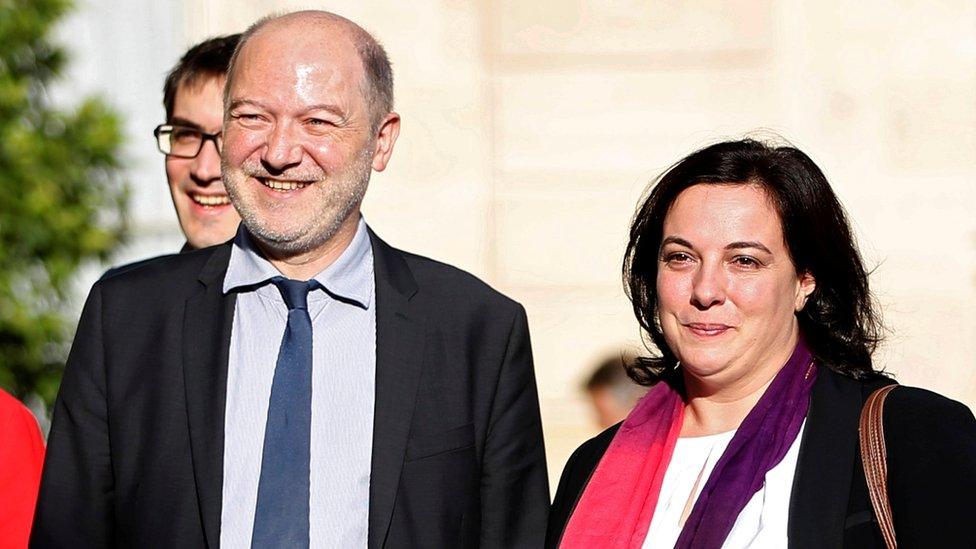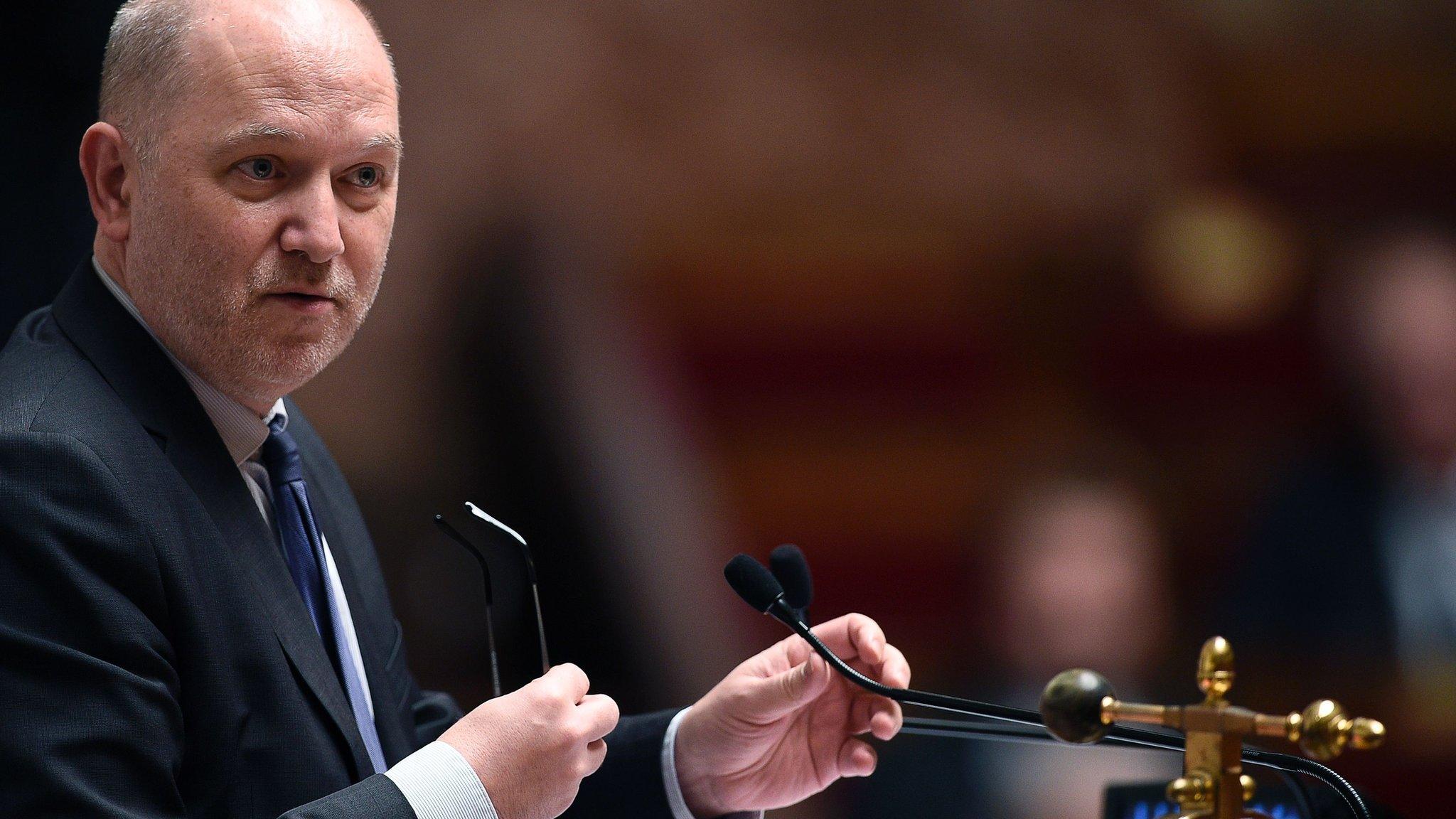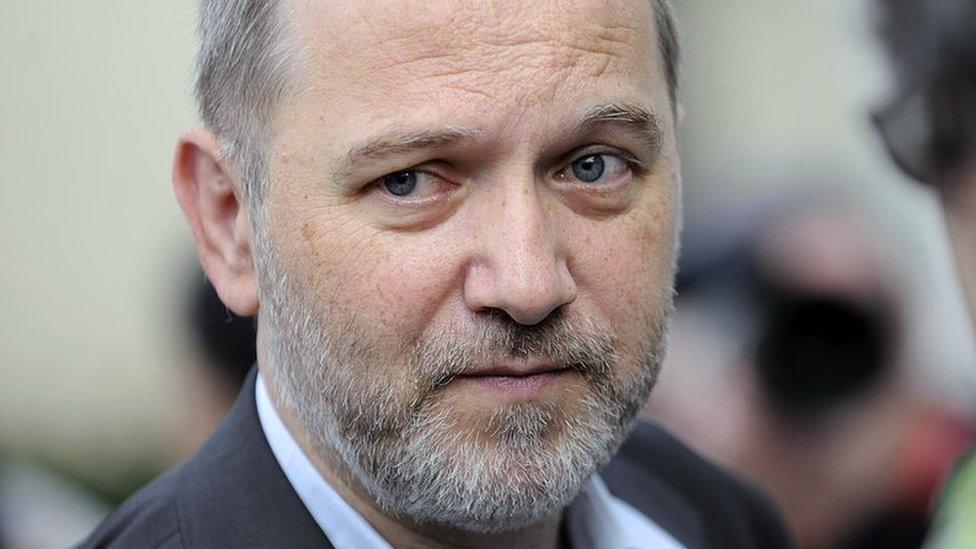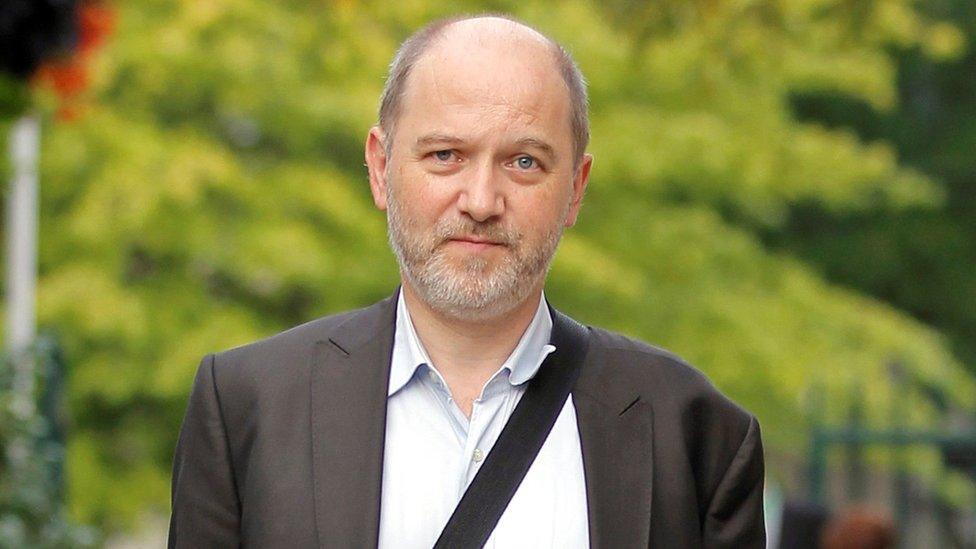French women say 'Non' to everyday sexism
- Published

Sandrine Rousseau (L), Isabelle Attard (C) and Elen Debost (R) were among eight women alleging harassment involving former deputy speaker Denis Baupin
It's the month of May and, as often in France, it comes with its string of scandalous sex allegations involving French politicians.
Five years ago, IMF head Dominique Strauss-Kahn (DSK) was accused of attempted rape after his arrest on an Air France plane bound for Berlin, where he was due to meet German Chancellor Angela Merkel to discuss the euro crisis, although the charges were later dropped.
Now the deputy speaker of the French assembly, the ecologist Denis Baupin, has had to resign after being accused by eight women from his party of sexual impropriety.
The timing of the accusations against Denis Baupin appears highly political, amid infighting within the Green Party.
It doesn't mean that the facts described by the accusers (including groping in dark corridors and sending salacious texts) did not take place, simply that the allegations may amount to nothing more than smears, especially as the facts date back more than three years and can no longer be tried under French law.
Denis Baupin, 53, is left having to sue his accusers for defamation to try to prove his innocence. He vigorously denies the allegations.

Denis Baupin, here with his wife, housing minister Emmanuelle Cosse, has denied the harassment claims
Radical left feminists such as Caroline de Haas and Clementine Autain claimed that "everybody had known about it for years".
But then why has nobody spoken up before, especially in the Green Party, where transparency is almost an ideology? Social media were quick on the case of Denis Baupin, but it felt more like the Inquisition than justice.
These allegations have thrust into the spotlight many different aspects of the problem of sexual harassment in France.
The DSK scandal was a watershed moment in contemporary France in that it allowed French women to talk and be heard on the subject of casual misogyny and everyday sexism that seem ingrained in French culture.
As a French woman born in the seventies, I was taught both Simone de Beauvoir and the art of gracefully enduring daily sexism, as long as it didn't go too far, but the limits were murky and never really explained to any of us.
Besides, when I started in journalism, the legal notion of sexual harassment, or for that matter moral harassment, was deemed a thing invented by the Americans to make human relations miserable.

Although the charges against DSK were dropped, the case became a pivotal moment for French women
I simply learnt quickly not to remain alone in the presence of certain older colleagues, to escape their groping with a smile and a joke, and to ignore their "declarations of love".
It usually worked and, after all, we were heirs of 18th-Century literary and artistic greats Marivaux and Fragonard - one had to abide by certain cultural, unwritten laws. I must say that I also benefited from the protection of older male and female colleagues who knew who the philanderers were.
With time, one developed a sophisticated radar. But for most of us, it is still a question of keeping out of the way of male-chauvinists rather than fighting them directly.
Perhaps it is because many of the "new feminists" who do take them on seem to "imply that women are by definition victims and men all predators", as the editor of Causeur magazine, Elizabeth Levy, put it, external.
"There have always been men, and women, abusing their power to obtain sexual favours," she argues. "But now, and because of a few fools, the whole male gender is incriminated. The new feminists say they want to free us from sexism, but what they really want is to invent a genderless and sexless world."
French society seems at a crossroads, torn between the desire to crack down on sexual harassment, move forward and free itself from a long tradition of male chauvinism - and the reluctance to start a gender war.
Agnes Poirier is UK editor for French political weekly Marianne, external
- Published10 May 2016

- Published10 May 2016

- Published10 May 2016
